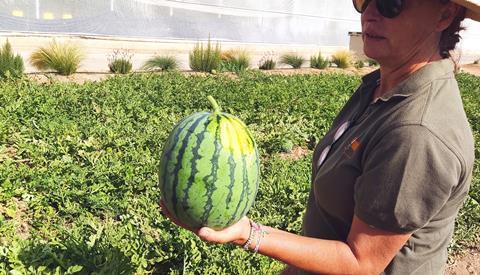Exporter federation says rules covering packaging, phytosanitary applications, soil and digitisation are complex and onerous for producers

A government commission set up by Spanish exporter federation Fepex is calling for a moratorium on new rules for the fruit and vegetable sector stemming from the implementation of the EU’s Farm to Fork Strategy.
At a meeting in Madrid on Tuesday, Fepex concluded that pending royal decrees covering packaging and packaging waste, the sustainable use of phytosanitary products, sustainable nutrition in agricultural soils and information systems on agricultural and livestock farms will have a major impact on the sector’s productive and commercial activity and do not contribute to addressing the challenges of the sector.
Fepex said pending royal decrees covering packaging and packaging waste, the sustainable use of phytosanitary products, sustainable nutrition in agricultural soils and information systems on agricultural and livestock farms will have a major impact on the sector’s productive and commercial activity and do not contribute to addressing the challenges of the sector,
The commission, made up of representatives of fruit associations from the different autonomous communities of Spain, analysed the extensive legislative package of new applications in the fruit and vegetable sector, due to be published before the end of the year.
One, the royal decree on packaging and packaging waste, will require selling produce in quantities of less than 1.5kg without using plastic. Under its current wording this would prevent the use of recyclable, biodegradable or compostable plastic, thereby negatively impacting the sustainability of the sector.
There is also concern about the registration of food contracts, which will oblige buyers, as of January 2023, to register contracts and their modifications, annexes and complementary documentation, electronically, before taking delivery of the product.
In production, meanwhile, the commission says three royal decree projects will have a particularly negative impact: the sustainable use of phytosanitary products; sustainable nutrition in agricultural soils and, thirdly, one which establishes and regulates information systems for agricultural and livestock farms and agricultural production, as well as the regional register of agricultural holdings and the digital agricultural notebook, known as Royal Decree SIEX.
Fepex claim this will place extra burdens on producers, such as the obligation to notify the state electronically of all the phytosanitary treatments carried out on each crop and plot within a period of one month.
The royal decree establishing standards for the sustainable nutrition of agricultural soils, meanwhile, obliges producers to establish fertilisation standards, subscriber plans for each production unit, and the registration of all nutrient applications in a digital farm notebook within a period of one month.
Finally, the SIEX royal decree obliges growers to digitally supply data related to crops, variety, destination of production, etc., as well as the data on phytosanitary treatment and fertilisers per crop unit, among other aspects.
Fepex commented: “This hyper-regulation of productive and commercial activity will have a negative impact on the competitiveness of the fruit and vegetable sector, in a context marked by cost inflation and in which overseas competition is growing and exports are low”.
Spanish fruit and vegetable exports to September of this year decreased by 8 per cent compared to the same period in 2021, totalling 8.8m tonnes, while imports increased by 7 per cent to 2.7m tonnes.
For this reason, a review of these standards and a moratorium on their application is required, as well as a global review of the phytosanitary policy that also takes into account future changes derived from community regulations related to the Farm to Fork Strategy,” Fepex said.



